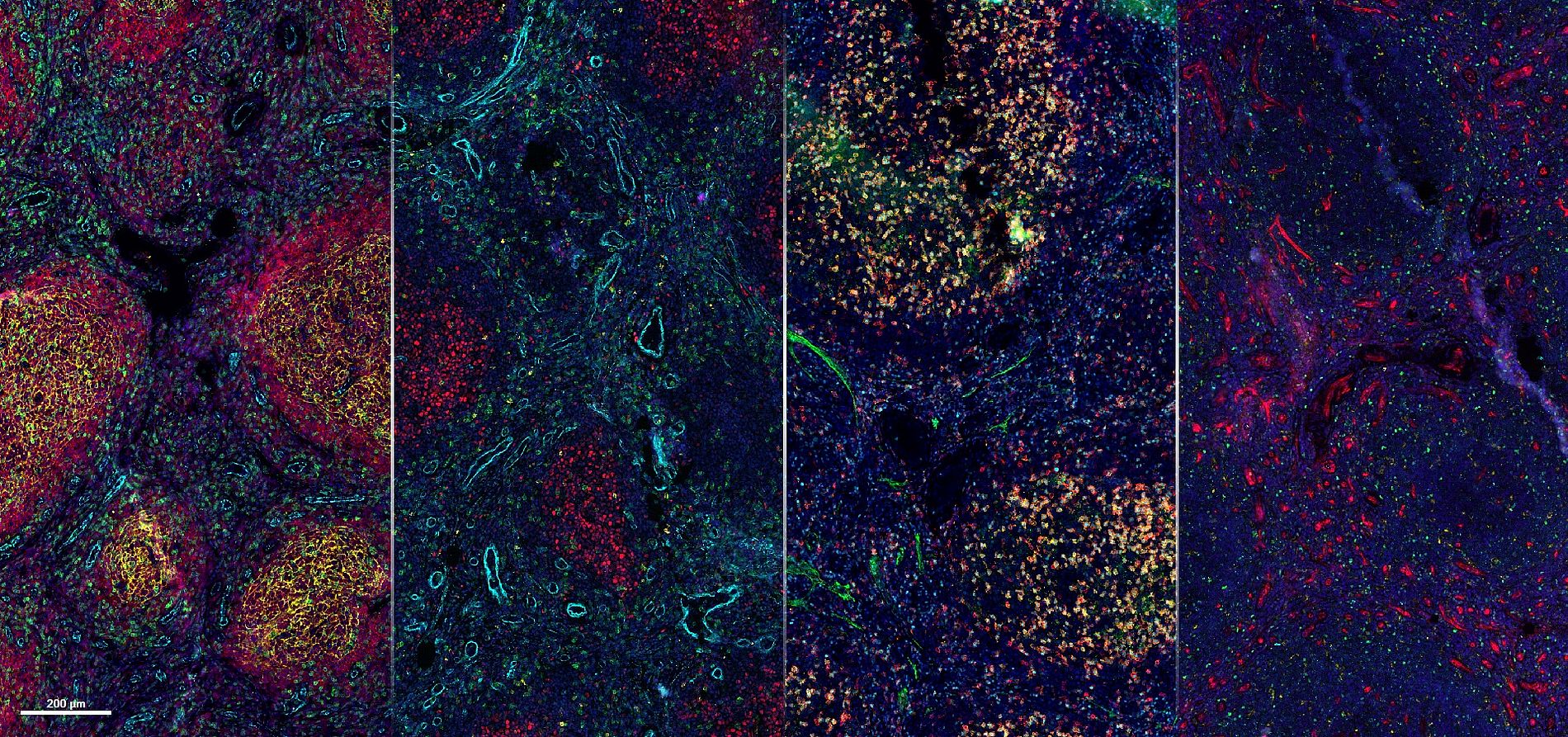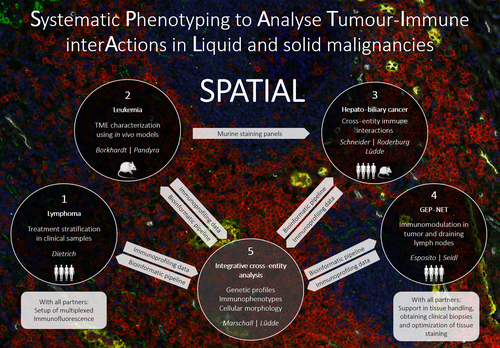Spatial Tissue Organization - Projects
Our group aims to bring biology-based individualized treatment of lymphoma and leukemia into clinical practice.
Working towards this goal, researchers from our team investigate biomarkers of response and therapy resistance using, among other techniques, functional profiling, multiparametric imaging and single-cell-sequencing. In parallel, we analyze clinically obtained data in our data warehouse projects to transfer clinical observations into meaningful guidelines. Further information about our research can be found on the project pages or on our website: https://www.dietrichlab.de

Multi-omics - characterization of lymphoma subpopulations and their microenvironment is the starting point for understanding their influence on immune therapy response. Therefore, we start by generating multi-omics data, such as cellular transcriptome and epitope sequencing, genome sequencing, and proteomics to identify cellular subpopulation biomarkers of therapy response and resistance mechanisms. These biomarkers are used to detect relevant subpopulations in formalin-fixed tissue samples via multiplex-immunofluorescence.
For more information see also:
SPATIAL omics
Beyond hematologic malignancies, we apply multiparametric immunofluorescence together with collaboration partners to understand disease biology and therapy response in many disease situations. One such collaborations is funded by the Düsseldorf School of Oncology (School of Oncology ǀ UKD (uniklinik-duesseldorf.de) and aims to investigate tumor-immune-microenvironment interactions within multiple distinct malignant entities and in an integrative cross-entity analysis.



